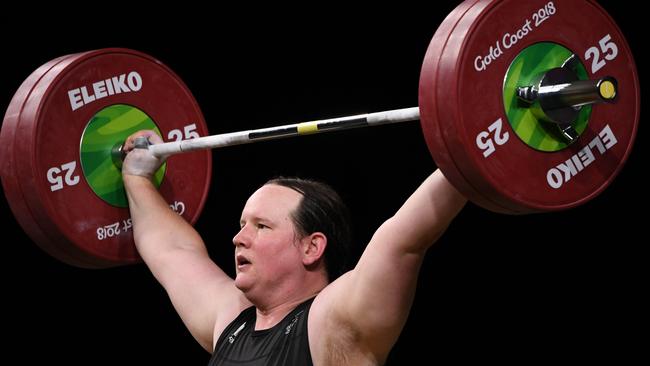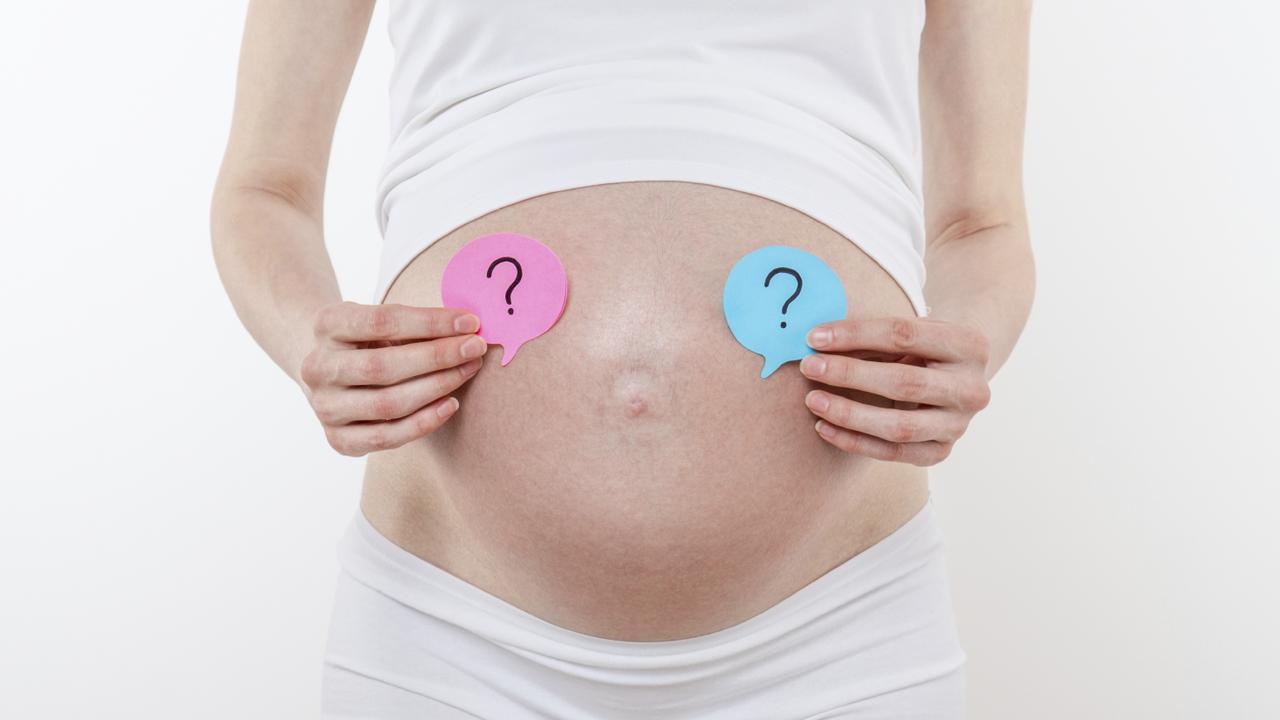Susie O’Brien: Like every other female, Laurel Hubbard’s rights matter
There’s no doubt transgender weightlifter Laurel Hubbard is different from her female Olympic peers — but she has earned her right to represent her country.
Susie O'Brien
Don't miss out on the headlines from Susie O'Brien. Followed categories will be added to My News.
With a heart-shaped hand signal and a wave, it was all over for transgender weightlifter Laurel Hubbard. One of the most controversial OIympic competitors of the 2020 games was out after failing to lift 125kgs.
Within minutes a woman Hubbard was competing against had lifted 130kgs and more. The 40 per cent biological advantage conferred on her by some of her critics was nowhere to be seen.
Hubbard was gracious throughout and emotional as she failed on her final attempt. Her love-heart sign was a thank you to her many supporters.
Athletes like Hubbard should be welcomed as Olympic competitors as long as they meet the rules.
The IOC is committed to inclusion and this should include female athletes who started life as a male.
Like many other local and international organisations, the IOC no longer views gender in simple biological terms.
Since 2015, an athlete born male can compete in the Olympics as a female without sex reassignment surgery as long as she meets strict testosterone guidelines.
This has paved the way for the Hubbard, a 43-year-old weightlifter from New Zealand, to become the first openly transgender Olympic athlete.
A talented junior weightlifter, Hubbard competed as a young man more than a decade ago. She started hormone therapy in 2012, resumed competing five years ago and has been successful enough to make it to the Olympics.
But this is not enough for her critics, who have been bleating: “What about the women?”
Well, Hubbard is a now a woman, and her rights should matter along with every other female.
Her opponents point out that Hubbard is not like everyone else because her past as a male gives her an unfair advantage.
There’s no doubt Hubbard is different; she’s up to a decade older and is taller and broader than some of her female weightlifting peers. However, this a sport for powerfully- built athletes.
When Hubbard stood alongside the other Olympic lifters, she didn’t appear to be outrageously larger than the others.
The fact that she made an early exit and didn’t win a medal will quieten – but not extinguish- the debate about transgender athletes.

If Hubbard had eclipsed the field and won a gold, she would have been judged as a formerly biological man, and vilified as evidence of discrimination against biological women.
One thing remains: the IOC has an ongoing responsibility to ensure the process governing Hubbard’s participation is as fair as possible to everyone competing.
The participation of a transgender athlete should not be at the expense of any other competitor.
It’s pertinent that Hubbard has met all the testing requirements set by the International Weightlifting Federation, International Olympic Committee and the New Zealand Olympic Committee. This is why I believe she had the right to compete.
She must have had testosterone levels below 10 nanomoles per litre for at least 12 months before the competition.
The IOC rules allow it to subject some individuals to a confidential case-by-case evaluation and, if needed, order testosterone limits for a longer period than 12 months.
The committee also has a duty to conduct regular reviews of such rules incorporating the most current scientific data. Such a process must be as transparent and robust as possible.
This is because the science on the enduring impact of male hormones from puberty in female transgender athletes is by no means settled.
Some argue the discrimination, negativity and scrutiny transgender athletes are subjected ameliorates any supposed biological advantage.
It’s telling that one of Hubbard’s competitors, Australian Charisma Amoe-Tarrant, says she wishes her well. “I have so much respect for her and wish her and the other lifters the best and hope we can all come together and enjoy the Olympics,” the 22-year-old has said.
I’d take her view over that of Deborah Acason, a former Commonwealth gold medallist in weightlifting, who says Hubbard’s inclusion has upset the level playing field. A fundamentalist Christian who doesn’t believe in evolution, she says women and girls will be dissuaded from joining the sport.
Monday night’s graceful exit of Hubbard will dissuade no woman from entering the sport as has been claimed.
As Hubbard’s Olympic inclusion illustrates, most of us have come a long way in respecting people’s varied gender identities. Toilets in schools are increasingly unisex, Girl Guides no longer have to born female and there was recently a Prom King at a state girls’ high school.
And now a woman who was born a man is proudly representing her country.
I wish her, and her competitors, all the best.
Susie O’Brien is a Herald Sun columnist



